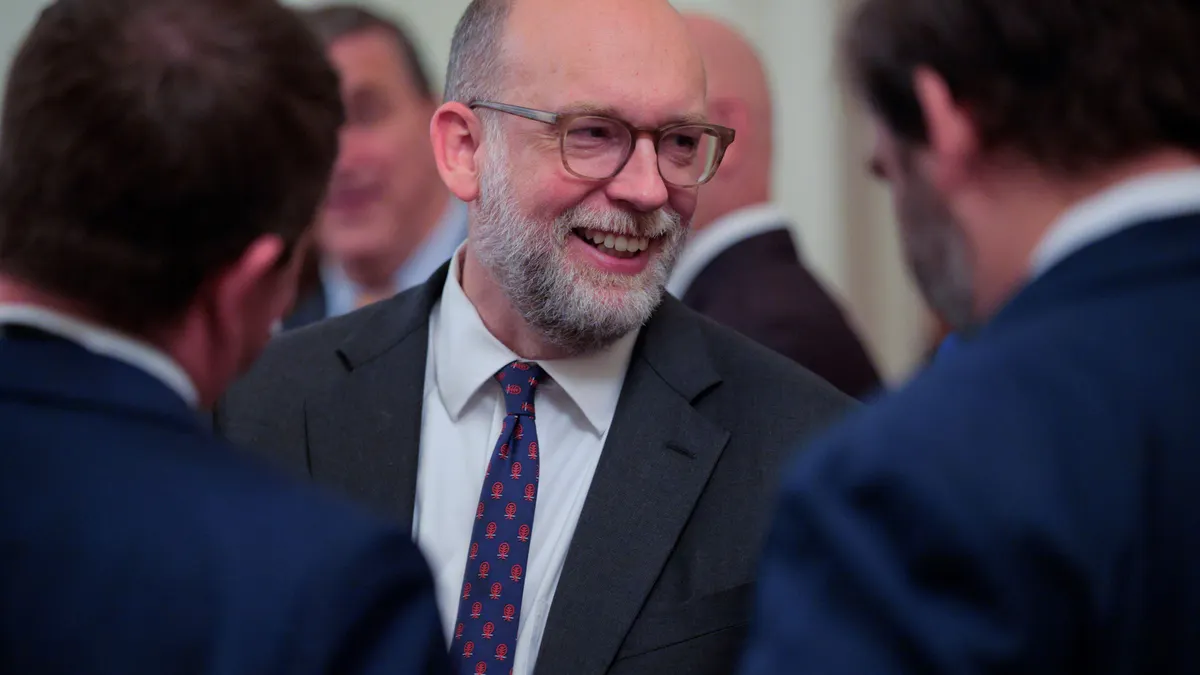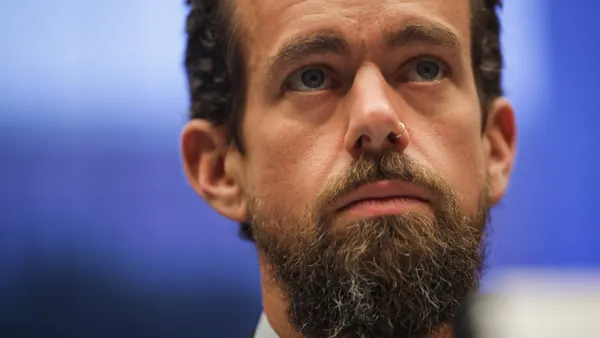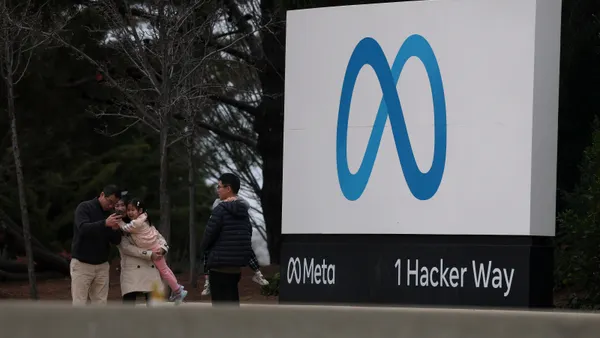In a bold move this week, the Justice Department’s Office of Legal Counsel told Consumer Financial Protection Bureau Acting Director Russ Vought that the bureau may not legally request funds at this time from the Federal Reserve under the Dodd-Frank Act.
A DOJ memo to Vought, including that determination, was submitted Monday in a filing to the U.S. District Court for the District of Columbia as part of a case against the bureau’s sporadic attempts to decimate its own workforce.
The filing was meant to alert the court of a “potential lapse in appropriations” to pay the bureau’s operating expenses, the document said. The CFPB “anticipates exhausting its currently available funds in early 2026,” DOJ attorneys told the court.
In its memo, the OLC argues the CFPB’s funding procedure is unlawful under an interpretation of the term “combined earnings,” as used in Dodd-Frank.
By its logic, the OLC equates earnings – from which the Fed can derive the CFPB’s operating budget – with profits, rather than revenues. However, the Fed has operated at a loss since 2022.
“If the Federal Reserve has no profits, it cannot transfer money to the CFPB,” T. Elliot Gaiser, the assistant attorney general who leads the OLC, wrote to Vought.
The irony is, Vought, since February, has consistently refused funding for the CFPB from the Fed.
Gaiser is not the first financial mind to interpret Dodd-Frank as tying CFPB funding to Fed profit. Insights published by The Wall Street Journal, The Federalist Society and the American Enterprise Institute have theorized much the same – especially since the Supreme Court last year upheld the CFPB’s funding structure.
In a statement Tuesday, Sen. Elizabeth Warren, D-MA – the architect of the CFPB and ranking member of the Senate Banking Committee – blamed Vought.
“This absurd maneuver by Russ Vought is plainly illegal, and federal judges have already rejected his fringe theory,” Warren wrote. “If the courts continue to uphold the law, Vought will fail again.”
Vought laid bare his aim to “put [the CFPB] out … within the next two, three months” in an October appearance on “The Charlie Kirk Show.”
“We don’t have anyone working there except our Republican appointees and a few career [employees] that are doing statutory responsibilities while we close down the agency,” he said at the time.
Only Congress can abolish the CFPB. However, under President Donald Trump’s “big, beautiful bill,” lawmakers cut nearly in half the ceiling on the CFPB’s operating budget – from a cap of 12% of the Fed’s operating expenses, to 6.5% at most.
“The Bureau does not know whether and the extent to which Congress will appropriate funding to pay the expenses of the Bureau," Brett Shumate, an assistant attorney with the DOJ's civil division, wrote in Monday’s filing.
It is unclear how Wednesday’s end to the government shutdown may affect the CFPB’s narrative here.
Vought plans to prepare a report to Trump and to congressional appropriations committees identifying the "funding needs of the Bureau," the DOJ noted.
In a rare post on its website Tuesday, the CFPB noted that the opinions of the OLC “are binding upon Executive Branch agencies including the Bureau.”















